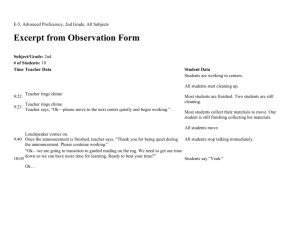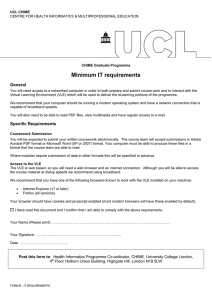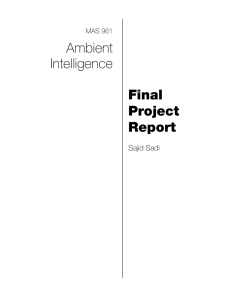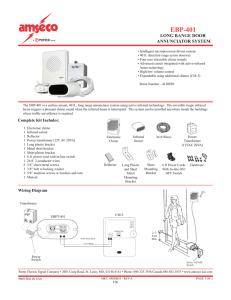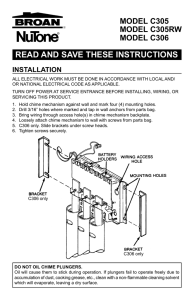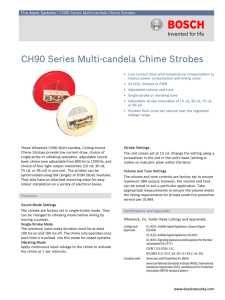Sajid Sadi Project Update
advertisement
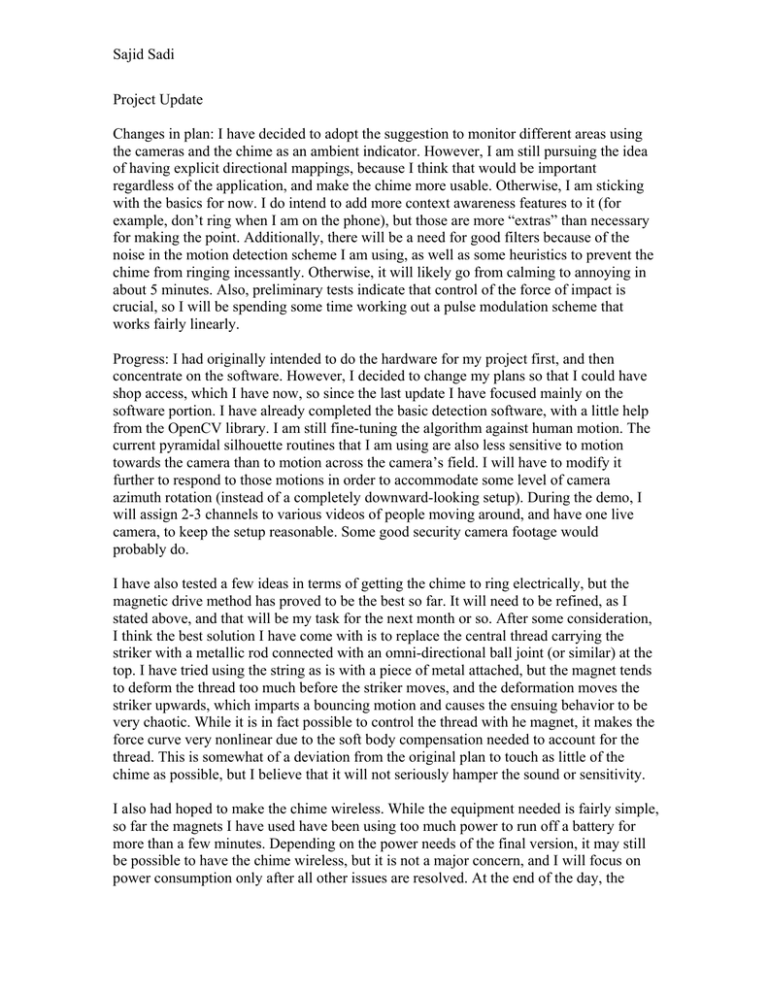
Sajid Sadi Project Update Changes in plan: I have decided to adopt the suggestion to monitor different areas using the cameras and the chime as an ambient indicator. However, I am still pursuing the idea of having explicit directional mappings, because I think that would be important regardless of the application, and make the chime more usable. Otherwise, I am sticking with the basics for now. I do intend to add more context awareness features to it (for example, don’t ring when I am on the phone), but those are more “extras” than necessary for making the point. Additionally, there will be a need for good filters because of the noise in the motion detection scheme I am using, as well as some heuristics to prevent the chime from ringing incessantly. Otherwise, it will likely go from calming to annoying in about 5 minutes. Also, preliminary tests indicate that control of the force of impact is crucial, so I will be spending some time working out a pulse modulation scheme that works fairly linearly. Progress: I had originally intended to do the hardware for my project first, and then concentrate on the software. However, I decided to change my plans so that I could have shop access, which I have now, so since the last update I have focused mainly on the software portion. I have already completed the basic detection software, with a little help from the OpenCV library. I am still fine-tuning the algorithm against human motion. The current pyramidal silhouette routines that I am using are also less sensitive to motion towards the camera than to motion across the camera’s field. I will have to modify it further to respond to those motions in order to accommodate some level of camera azimuth rotation (instead of a completely downward-looking setup). During the demo, I will assign 2-3 channels to various videos of people moving around, and have one live camera, to keep the setup reasonable. Some good security camera footage would probably do. I have also tested a few ideas in terms of getting the chime to ring electrically, but the magnetic drive method has proved to be the best so far. It will need to be refined, as I stated above, and that will be my task for the next month or so. After some consideration, I think the best solution I have come with is to replace the central thread carrying the striker with a metallic rod connected with an omni-directional ball joint (or similar) at the top. I have tried using the string as is with a piece of metal attached, but the magnet tends to deform the thread too much before the striker moves, and the deformation moves the striker upwards, which imparts a bouncing motion and causes the ensuing behavior to be very chaotic. While it is in fact possible to control the thread with he magnet, it makes the force curve very nonlinear due to the soft body compensation needed to account for the thread. This is somewhat of a deviation from the original plan to touch as little of the chime as possible, but I believe that it will not seriously hamper the sound or sensitivity. I also had hoped to make the chime wireless. While the equipment needed is fairly simple, so far the magnets I have used have been using too much power to run off a battery for more than a few minutes. Depending on the power needs of the final version, it may still be possible to have the chime wireless, but it is not a major concern, and I will focus on power consumption only after all other issues are resolved. At the end of the day, the Sajid Sadi system would still require a rather beefy computer for the image processing, so in some sense having it wireless is purely a matter of appearances. --------------------------------------------------------------------------------
